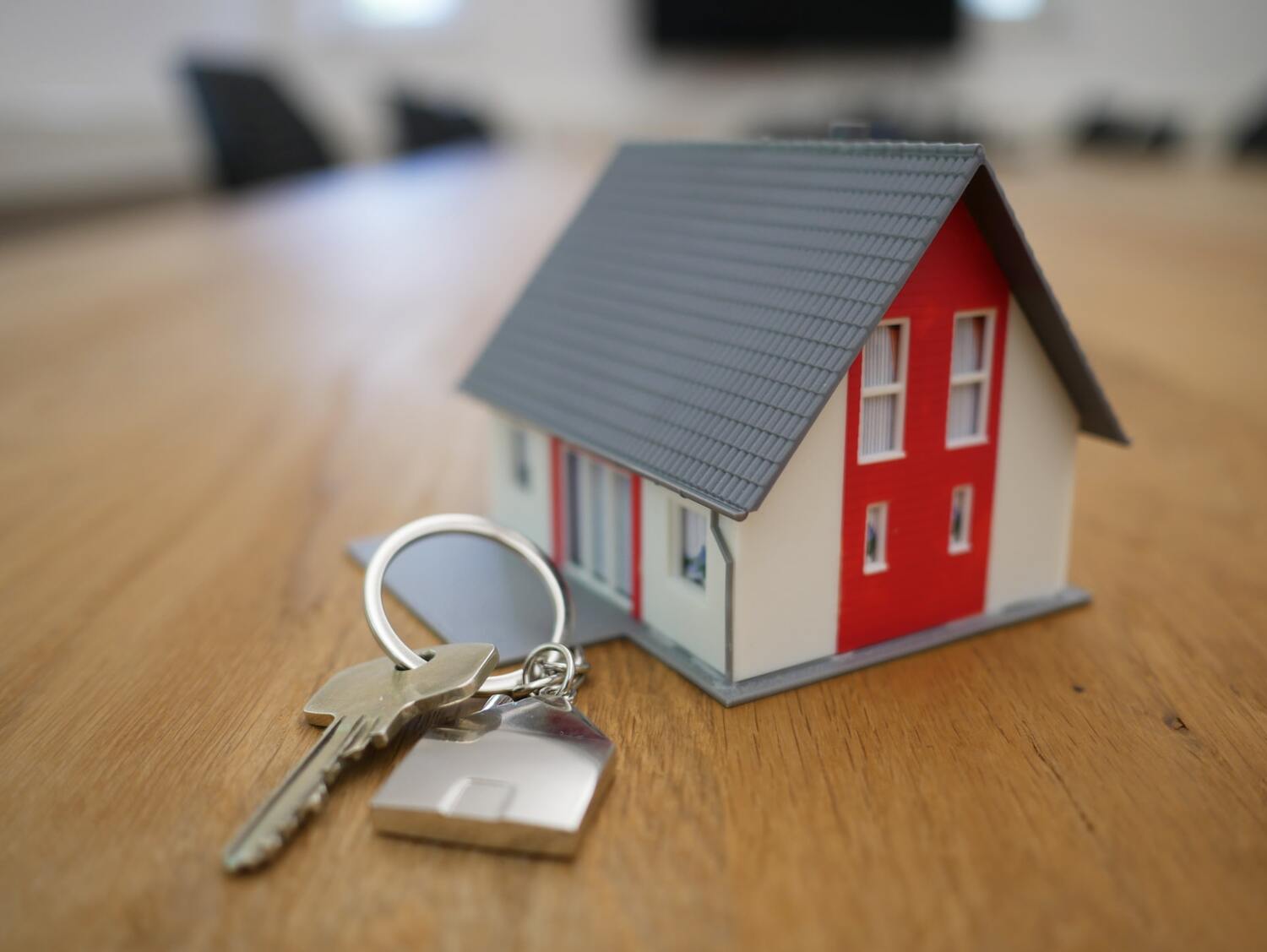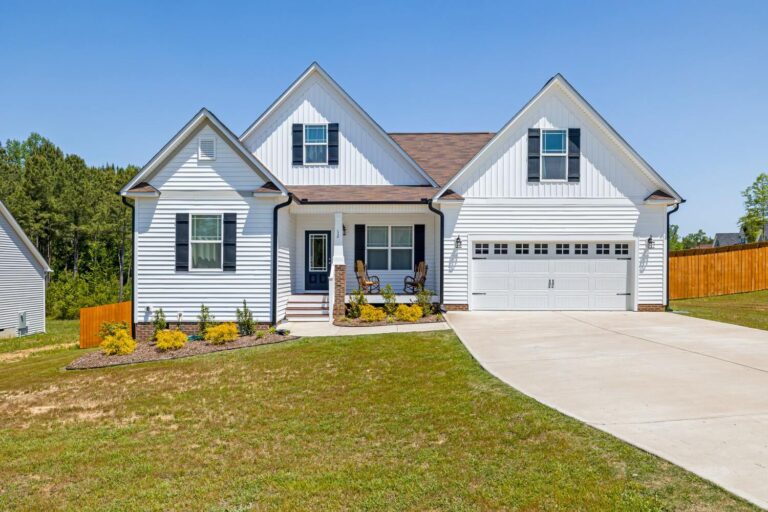House Hacking: How To Live Rent Free

If you’re interested in getting into real estate investing and want to live rent-free, then house hacking might be for you!
I was unfamiliar with house hacking strategies when I bought my first house. Then, I haphazardly rented it out after I moved out and moved in with my new wife.
I did all this without knowing what I was doing or knowing how to invest in rental properties.
If I knew what I knew now, then I would do A LOT more things differently!
What Is House Hacking?
House hacking is when a person rents out a room or rooms in their primary residence and uses the monthly rental income to pay a part or even all of the monthly mortgage payment, thus living “rent-free.”
The tenants don’t necessarily have to be the person’s roommates. Commonly, house hacking involves buying a multifamily property, such as a duplex or triplex. For example, a person could own a duplex or triplex and have the tenants live in one unit.
The crucial part of a house hacking strategy is that the owner also lives at the residence. For example, in a house hacking duplex, a tenant would be renting out one unit while the owner lives in the other unit.
This type of rental property investing is different from a Buy & Hold investment property or short term rentals because the investor is not living at the same place the tenants are. However, the principal is still the same: the tenants are the ones paying down the property’s debt service for the multifamily properties.
Benefits Of House Hacking
Living Rent Free
The first big benefit is that house hacking provides a way for a person to be rent-free!
If a person lives by themselves in their sing-family home, they would be solely responsible for making the mortgage payment. However, if they had roommates or tenants in another unit of their property, the tenants would pay the mortgage.
Lower Down Payment
An owner planning to house-hack can either use a Federal Housing Administration (FHA) Loan or a conventional loan to finance the property.
Owner-occupied properties require only a down payment of less than 5% of the purchase price. The better a person’s credit score, the lower their down payment can be. Additionally, they can also qualify for a low principal interest rate.
A non-owner occupied investment property requires a 20% down payment. This kind of down payment allows investors to avoid mortgage insurance.
Having to put less than 5% of a down payment to buy a multifamily property makes house hacking a steal!
Scale Faster
House hacking is a great way to grow a real estate portfolio due to the low down payment. However, an owner must live in the property for at least one year or face an extreme penalty.
After one year, the owner can refinance an FHA loan into a conventional loan and repeat the process.
Unfortunately, I didn’t house hack a single-family home with my first purchase. I didn’t have the right mindset and just wanted to get rid of the property. If I kept the property, I would have had significant equity in the property!
If you’re interested to learn more about scaling, check out my other post on the BRRRR method. BRRRR stands for Buy, Rehab, Rent, Refinance, and Repeat!
It’s all about finding great real estate deals in your real estate market, which an experienced real estate agent can help you do your first house hack. Also, wholesalers can help you find motivated sellers, like absentee owners.

Why Don’t People House Hack?
If there is a way for a person to live rent-free, why isn’t everyone doing it? My personal opinion is that it’s because of privacy and responsibility.
A person usually looks for a roommate because they need a roommate to help reduce the housing expense.
Buying a single-family house has a sense of ownership and independence. So it’s not common for a person to initially think they want a roommate to purchase their own single family home.
Furthermore, the thought of being a landlord scares a lot of people. When I first became a landlord, I dreaded it and didn’t want to be one.
I only rented out my first house because I felt like I would not be able to sell it and was looking forward to the day when I can rid of my house.
I didn’t have the right mindset.
The solution I would recommend to someone wanting to house hack is to purchase a property (i.e., duplex, triplex). This way, they would still be able to maintain their sense of privacy.
Also, the owner could hire a property management company to manage the tenants. It doesn’t have to be disclosed to the tenants that the owner also lives on the property. For example, I have a property manager to handle all my rental properties.
However, when I want to visit a property, I introduce myself as a point-of-contact to the tenants. There have been some occasions when I would work on the outside of the property, and people assumed I was just a contractor, as well.
Is House Hacking Legal?
There is nothing illegal about an owner living in one of the units of their property. However, it is unlawful for an owner to convert a garage into a bedroom for creative house hacking.
The owner needs to get a permit from the city before proceeding and verify the local zoning ordinances. Follow the law and avoid making house hacking mistakes!
Also, insurance companies tend to have lower premiums if the owner is living in the property. But, again, this is because people tend to take better care of their primary residence than investment properties.
Another thing to be mindful of is what kind of loan to finance the property, specifically an FHA loan.
FHA loans are only allowed to be used only one at a time. Therefore, an owner cannot purchase another property with an FHA loan if they already have one.
Real Estate Financing
One of the most powerful things in real estate is leverage! For example, a person may only need $6,000 to purchase a $200,000 property.
Aside from working with a hard money lender, I strongly recommend any future successful real estate investor to build a good relationship with a local in-state banker.
Federal Housing Administration Loan
An FHA loan is a Federal Housing Authority insured loan. The U.S. government would insure lenders from any losses if a borrower defaulted on their mortgage payments. In addition, The government adds some fees onto the monthly mortgage payment via private mortgage insurance.
This loan is desirable because of the low down payment and credit score requirements. FHA loans require a minimum of 3.5% for a down payment and a minimum credit score of 580.
However, this type of loan does have a little stricter requirements because the government is ensuring it. So although a person may have an excellent credit score, they might have to jump through a couple of hoops to get approved.
VA Loan
The government also ensures VA loans but are designed only for U.S. military members and veterans. This type of loan requires no money down and does not include any mortgage insurance.
The requirements for this loan are similar to an FHA loan. However, a seller can pay 100% of the closing cost, unlike 3% with an FHA loan.
Conventional Loan
A conventional loan can have an even lower down payment requirement compared to an FHA loan. However, conventional loans require a minimum credit score of 620.
Another difference between a conventional loan and an FHA loan is mortgage insurance. With a conventional loan, the mortgage insurance goes away after at least 20% of the loan resulting in a lower monthly payment.

How To Calculate A House Hack
The main components of a house hacking calculator are the monthly mortgage payment and the rental income. If the goal is to live mortgage-free, the rental income must be, at a minimum, equal to the mortgage payment.
However, the total monthly expenses should also be considered:
- property taxes
- homeowner insurance
- repairs maintenance cost
- operating expenses
- capital expenditures
Therefore, it’s essential to calculate the cash on cash return to ensure that all expenses are accounted for in the rental income. Check out below to see the house hacking calculator to start analyzing.
Monthly Mortgage Calculator
Having an idea of the monthly mortgage payment will give you an idea of how much rent you will need from the tenants to live rent-free.
Below is a Monthly Mortgage Calculator that you can use once you know how much the down payment percentage a bank requires. Note: This does not include any closing costs.
1% Rule
The one percent rule is a quick estimation to see if the purchase price works with the potential rent. This estimation doesn’t consider specific monthly expenses, such as property management, insurance, taxes, etc.In the example below, the purchase price is $150,000. Therefore, the one percent rule calculates that the rent should be about $1,500.
1% Rule = Purchase Price x 1% = $150,000 x .01 = $1,500
If the purchase price is $170,000 and the potential rent is $1,500, then the one percent rule does not qualify this as a good deal.
Cash-on-Cash Return
The cash-on-cash return (CoC) is the net operating income (NOI) for the year to the initial investment. The net income is the difference between gross rental income and expenses. Net operating income is also known as cash flow.
For example, if the monthly gross rental income is $1,000, and the monthly expenses are $800, then the monthly cash flow would be $200.
The total amount of the initial investment is composed of all the costs associated with acquiring the property and getting the investment property available to rent.
For example, if the down payment for a property (closing costs included) is $5,000, and the rehab costs $1,000, then the initial investment is $6,000.
Therefore, the cash-on-cash return for this example is 40%. Investors strive for at least 10% with a positive cash flow of $100. This high CoC return is possible due to the low down payment!
Cash-on-Cash = monthly cash flow x 12 / initial investment = $200 x 12 / $6,000 = 0.04 = 40 %
It is important to note that cash flow is not necessarily a priority for an owner who is house hacking and wants to live rent-free. However, over time, a new tenant can replace the owner; then, the cash flow will increase!
Online Real Estate Marketplace
Roofstock.com is an online real estate marketplace for buyers of real estate investment properties. Receive alerts on properties that match your crystal clear criteria and make an offer online.
House Hacking Calculator
Final Thoughts
House hacking is one of the most straightforward real estate investing strategies and a great way to start building wealth, increase your net worth, and reach financial independence! If a person is willing to lose some privacy or doesn’t mind managing tenants or a manager, house hacking is a great idea.
A person can live rent-free and only be required to put a low down payment on a property. Then, after a year, the owner can refinance an FHA loan to a conventional loan.
An owner occupant can set aside the passive income from the tenants to make money or build up another down payment. The owner can then repeat the process to have free house living.
Share your goals with a local real estate agent to help you do a successful house hacking.






